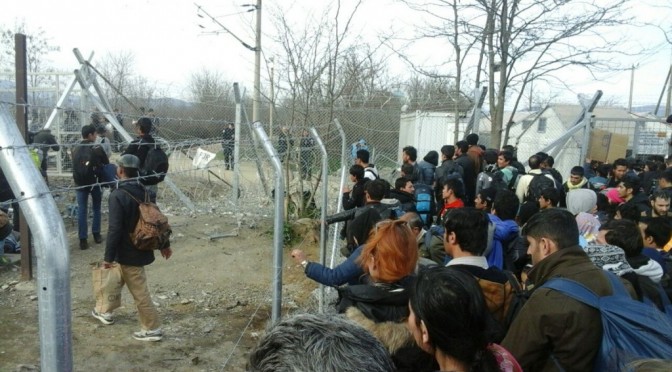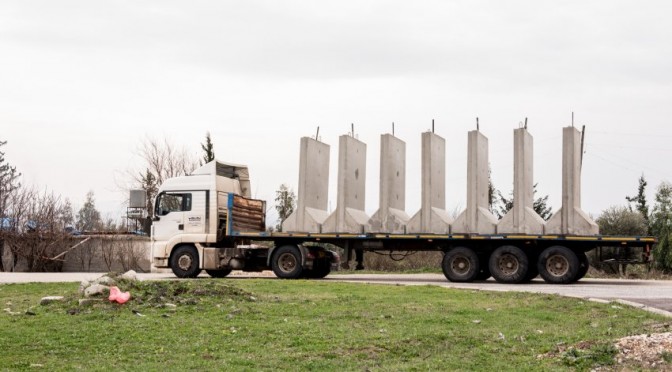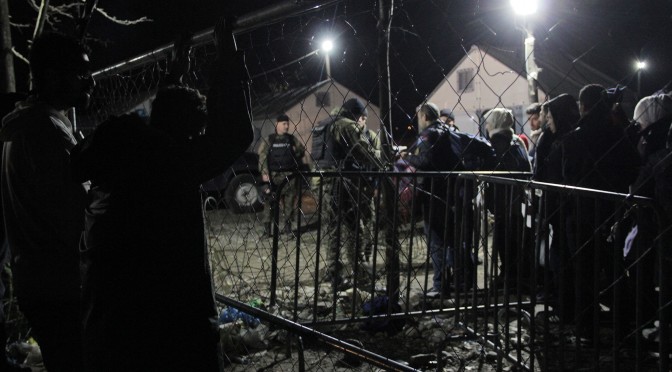GÄNZLICH UNERWÜNSCHT. Entrechtung, Kriminalisierung und Inhaftierung von Flüchtlingen in Ungarn.
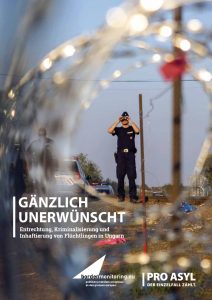
Der von bordermonitoring.eu und Pro Asyl gemeinsam veröffentlichte Bericht zeichnet im ersten Teil zunächst die Entwicklungen von Beginn des Jahres 2015 bis zum Frühjahr 2016 nach. Im zweiten Teil wird detailliert auf die beiden Gesetzespakete eingegangen, die im Sommer 2015 verabschiedet wurden und das individuelle Asylrecht in Ungarn faktisch abgeschafft haben – insbesondere durch die Erklärung Serbiens zum „sicheren Drittstaat“. Der dritte Teil geht auf die Inhaftierung von Asylsuchenden ein. Der vierte Teil beschreibt den staatlichen Umgang mit Dublin-Rückkehrern sowie zurückgeschobenen Personen mit Schutzstatus und die Bedingungen, mit denen sie in Ungarn konfrontiert sind.
- Download als PDF
- Ab 13.7.2016 kann eine Druckversion des Berichts bei Pro Asyl bestellt werden.
- Fördermitglieder von bordermonitoring.eu bekommen den Bericht automatisch und kostenfrei zugesandt.
Eviction of Idomeni
Updates from the eviction in Idomeni
Statement of Moving Europe:
Since heavy clashes between the Greek police and inhabitants of the makeshift camp of Idomeni erupted and most of the people had to experience police violence by tear gas1, the situation in Idomeni has not calmed down. During the weekend, intense rain transformed the camp into a mud place again2, and supporting structures were increasingly limited in accessing the camp. Cars have been stopped and searched, and volunteers were taken to police stations for several hours for questioning.
detention, deportation, dubious legislation
– Der EU-Türkei-Deal steht auf wackeligen Beinen und hat trotzdem bereits dramatische Auswirkungen
»Freedom!« und »No Turkia« rufen die Menschen hinter dem Zaun immer wieder. Hier im sogenannten Hotspot »Vial« auf der Insel Chios sind seit Inkrafttreten des Abkommens zwischen der EU und der Türkei über 1.000 Menschen inhaftiert. In der ehemaligen Recycling-Fabrik schlafen sie auf Pappe und werden von Freiwilligen durch den Zaun mit Essen versorgt. All das geschieht abseits der öffentlichen Aufmerksamkeit. Die großen NGOs haben sich verabschiedet, Medienvertreter_innen sind kaum präsent. Nur eine Gruppe Aktivist_innen beobachtet und dokumentiert die Situation.
Zwischen Abschiebung, Protest und rassistischer Gewalt
Am vergangenen Freitag, den 8. April 2016 wurde die zweite Abschiebung im Rahmen des EU-Türkei Abkommens durchgeführt. 45 Personen von Lesbos und 95 weitere von den Inseln Samos und Kos wurden mit gecharterten Fähren in die türkische Hafenstadt Dikili gebracht. Erneut wurde ein enormes Polizeiaufgebot aufgefahren, um die Abschiebungen durchzusetzen. Am Hafen von Lesbos sprangen drei Aktivist_innen ins Wasser, um symbolisch ihren Protest zu äußern. Zwischen Abschiebung, Protest und rassistischer Gewalt weiterlesen
Der EU-Türkei–Deal und seine Konsequenzen [Update: 9]
Nachdem am Freitag, den 18. März 2016 der EU-Türkei-Deal beschlossen wurde, wird er nun mit Hochdruck umgesetzt. In diesem Artikel, den wir laufend aktualisieren werden, verfolgen wir die Umsetzung mit einem groben Fokus auf Griechenland und die Ägäis.
Der EU-Türkei–Deal und seine Konsequenzen [Update: 9] weiterlesen
Verengung 2.0. auf der Balkanroute
Dieser Beitrag entstand im Rahmen des Projekts Moving Europe. Aktuell sind wir vor Ort in Belgrad, Sofia, Idomeni und Athen.
Am Sonntag, den 21. Februar 2016 schloss Mazedonien die Grenze für Geflüchtete, die aus Afghanistan stammen. Dies stellt gewissermaßen die nächste „Verengung“ der Balkanroute dar, die schon lange erwartet wurde, nachdem in Idomeni – wo sich der Grenzübergang von Griechenland nach Mazedonien befindet – bereits seit November des letzten Jahres nur noch SyrerInnen, IrakerInnen und AfghanInnen passieren durften. Bereits diese erste „Verengung“ führte zu massiven Protesten, die wir ausführlich dokumentierten.
Panik vor dem Frühling: EU bei „managing the refugee crisis“ unter Zeitdruck
Beim EU-Gipfel am 18./19. Februar wird die “Bewältigung der Flüchtlingskrise” weiter im Mittelpunkt stehen. Der Joint Action Plan mit der Türkei und der Druck auf Griechenland zur besseren Zusammenarbeit hat noch nicht die erwünschte Wirkung gezeigt. Zwar spricht die Kommission in ihrer am 10.2. veröffentlichten Bestandsaufnahme über die Implementierung der im Dezember beschlossenen Maßnahmen von “großen Erfolgen”. Außer der Steigerung der Registrierungszahlen und abgenommenen Fingerabdrücke in Italien und Griechenland, bestätigt der Bericht jedoch eher eine stockende Umsetzung und wenig politischen Willen der Mitgliedsstaaten.
Panik vor dem Frühling: EU bei „managing the refugee crisis“ unter Zeitdruck weiterlesen
Turkey: Negotiating the “Harmonization”
Article by Mathias Fiedler, Photos by Charlotte Schmitz
One can recognize the negotiation process between the EU and Turkey in the so called “harmonization packages“ which were aimed to harmonize Turkish law with the European Union legislation[1]. The EU is more than ever before eager to collaborate with Turkey and both “partners“ agreed on a “joint action plan” concerning migration [2]. Turkey, being the most important transit country to Europe, is one of the “focal points of the EU’s externalization strategy” and the EU promised three Billion EUR for the reception of refugees. But while the EU-countries still are in disagreement on how to raise that sum, Erdoğan already stated that this amount of money won’t be enough anyway. However, the closer EU-Turkey collaboration has already had negative effects for refugees in Turkey: Refugee rights organizations stated that “more detention“ and “less reception” was one of the first consequences of the agreement [3].
Live Ticker Eidomeni restarted
On the 18th of November 2015, Slovenia closed its borders for refugees who are not from Syria, Afghanistan or Iraq. Just a little later, Croatia, Serbia and Macedonia also adopted this practice of segregation. There is little doubt about that this policy was pushed by the European Union as a starting point for slowing down or even stopping the flow over the Balkan route. Thousands of refugees were stuck in Eidomeni, Greece, and started to protest. The Moving Europe Bus was on the spot and reported live from the 22nd of November to the 11th of December 2015 – when the camp had been evicted. On the 5th of February 2016, we decided to restart our live-ticker as the new year has already seen several attempts from the European Union to slow down the migration movement towards Europe. Macedonia seems to become a key player in this strategy. For several weeks the Macedonian border authorities have slowed down the transit process. The predictable effect of this, given the high arrival numbers to the Greek islands, is that thousands are becoming stuck in Greece. On the 3th of February the Macedonian government announced its plans to strengthen border controls which will further reduce the speed of the transit process. In the meantime, the Greek authorities have established a new buffer zone near to Eidomeni. Since the camp at the border has already become highly overcrowded, there are fears that the violent scenes of last December in Eidomeni will be repeated. Therefore the authorities have decided that people should be kept at bay, at a gas station on the highway that is 20 km far away from the border (at Polykastro). For weeks migrants have had to stay there for hours under miserable conditions. Since the end of January the situation at the Greek border zone has escalated once more. There is only a trickle of people being let through to Macedonia and now people at the gas station have to wait for days before their buses finally leave towards the border. On the 3rd of February 2016 thousands of them decided not to wait any longer at the petrol station and started to walk towards the Macedonian border (#marchofhope 2). Further protests and tensions are to be expected. The Moving Europe Bus is on the spot since the 2nd of February and reports live from Polykastro and Eidomeni.
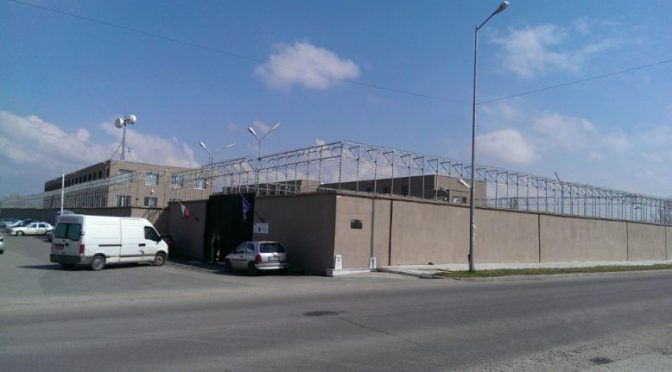
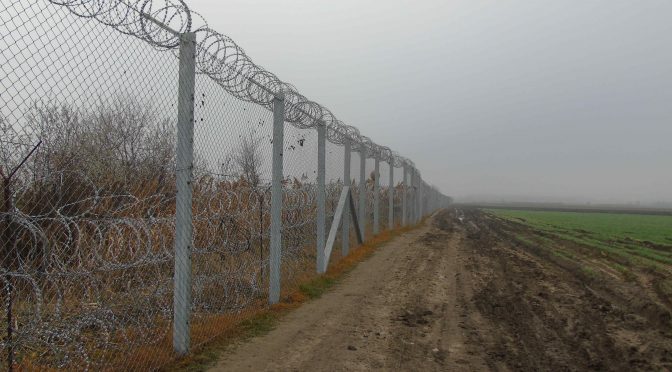
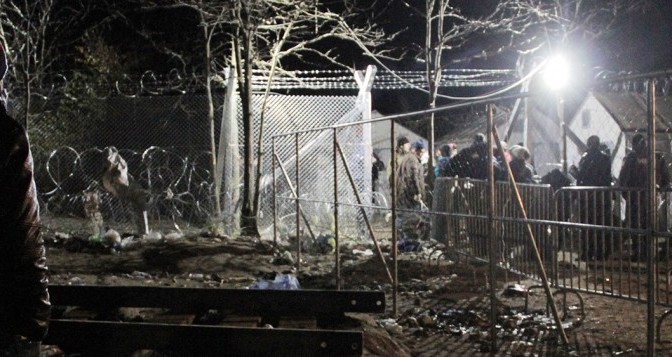
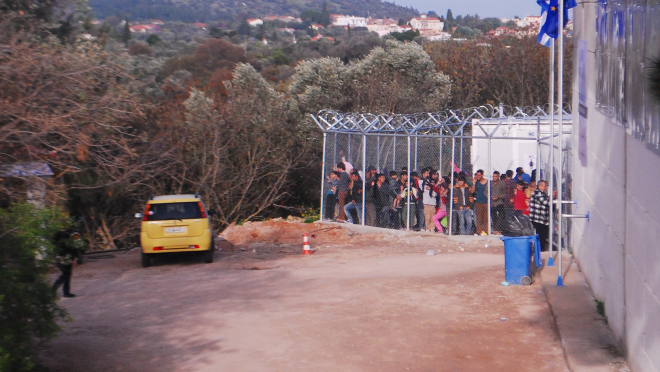
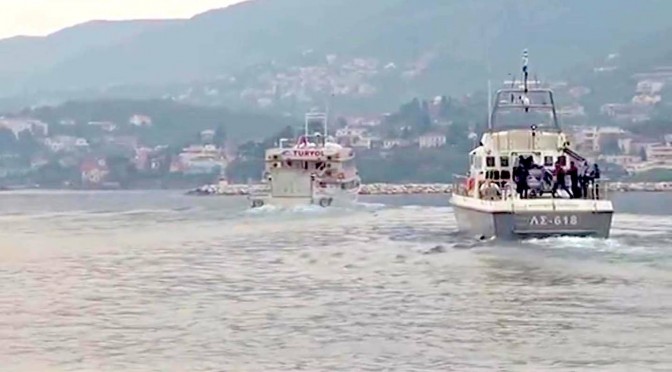
![Der EU-Türkei–Deal und seine Konsequenzen [Update: 9]](https://bordermonitoring.eu/wp-content/uploads/2016/03/CfC2hdGWwAEjNKp.jpg-large-672x372.jpg)
